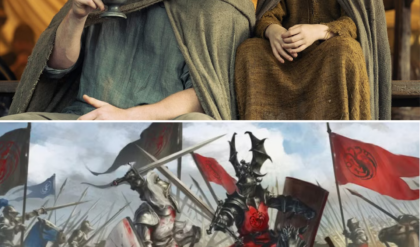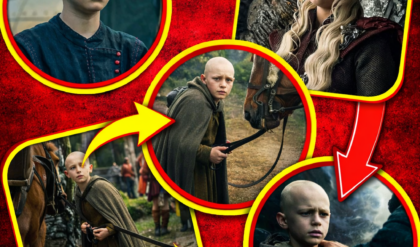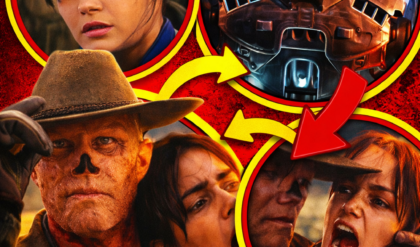🚨 BioWare’s Heartbreaking Plea: Save Our RPG Legacy from Corporate Greed?
Imagine the studio behind Mass Effect and Dragon Age—icons of epic storytelling—now dangling on the edge of oblivion. A 20-year veteran just dropped a bombshell: Disney could swoop in as the hero, but with Trump ties and Saudi billions calling the shots at EA, is profit the only plot twist left? Fans are raging—will beloved worlds like Thedas vanish forever?
What if one buyout could resurrect gaming’s golden era… or bury it? Click to uncover the insider warnings shaking the industry. 👉

The video game industry, long a battleground for creativity and commerce, is facing one of its most seismic shifts yet. Electronic Arts (EA), the publisher behind juggernauts like FIFA, The Sims, and the storied RPGs of BioWare, has been snapped up in a staggering $55 billion deal. Backed by Saudi Arabia’s sovereign wealth fund and former President Donald Trump’s son-in-law, Jared Kushner, the acquisition has ignited fears among developers and fans alike. At the center of the storm: BioWare, the Edmonton-based studio revered for narrative-driven masterpieces like Mass Effect and Dragon Age. A longtime BioWare executive has publicly floated the idea of a rescue buyout by Disney, painting a picture of a studio teetering on the brink under new ownership that prioritizes balance sheets over storytelling.
Mark Darrah, who served as executive producer on the Dragon Age series for over two decades before departing in 2020, didn’t mince words in a recent interview. Speaking to Eurogamer, Darrah described the EA takeover as a “wild card” for studios like BioWare, which has endured years of turbulence under the publisher’s umbrella—layoffs, project cancellations, and a pivot toward live-service models that some say diluted its single-player soul. “If EA’s new owners were to sell BioWare, it’s most likely to end up with Microsoft—but Disney could be interested,” Darrah said, acknowledging the irony of the Mouse House, a media behemoth often criticized for its own IP stewardship, stepping in as savior. His comments, amplified in online forums and a viral YouTube commentary video titled “BioWare Veteran Begging Disney to Buy Studio from EA! Trump and Saudi’s Only Care About Money!” have struck a nerve, blending genuine concern with pointed jabs at the deal’s political undertones.
The acquisition, announced on September 29, 2025, marks the largest leveraged buyout in gaming history. Saudi Arabia’s Public Investment Fund (PIF), chaired by Crown Prince Mohammed bin Salman, is the lead investor, committing roughly $30 billion alongside private equity firm Silver Lake and Kushner’s Affinity Partners. The deal values EA at $210 per share, a 25% premium over its pre-announcement stock price, and will take the company private—shielding it from Wall Street’s quarterly pressures but saddling it with an estimated $20 billion in debt. For Kushner, whose post-White House investment firm has leaned heavily on Gulf state capital, it’s a high-stakes return to the spotlight. Critics, including some in the gaming community, see echoes of the 2017 U.S.-Saudi arms deal brokered during the Trump administration, where Kushner played a key role.
BioWare’s plight isn’t new. Acquired by EA in 2007 for $860 million, the studio once symbolized unbridled ambition: sprawling worlds, morally complex characters, and romances that tugged at players’ heartstrings. Mass Effect 2 (2010) earned a perfect 96/100 on Metacritic, hailed as a pinnacle of interactive fiction. But under EA, the shine faded. The 2017 cancellation of a third Mass Effect title amid Anthem’s flop led to 2020 layoffs that gutted senior talent, including writers and artists. Dragon Age: The Veilguard, released in late 2024, aimed for a comeback but faced backlash over its “progressive messaging”—a term Darrah used cautiously, noting a potential clash with the new owners’ conservative-leaning backers. “It’s hard to imagine BioWare pivoting from very progressive messaging to having the reverse,” Darrah told GamesRadar, warning of “apocalyptically bad” public fallout if forced.
Current BioWare staff echo these anxieties. An anonymous developer, speaking to Kotaku on condition of anonymity, described a “funeral atmosphere” post-announcement. “Look at the negativity that came after Dragon Age. If we felt it was a failure, imagine what happens if the new bosses demand we tone down the queer representation or diverse casts that define us,” the source said. Saudi Arabia’s PIF has poured billions into entertainment as part of its Vision 2030 diversification push, snapping up stakes in Newcastle United soccer club, the PGA Tour, and now gaming. Yet, the kingdom’s record on LGBTQ+ rights—where same-sex relations can carry the death penalty—has queer gamers sounding alarms. “The Sims has always been a safe space for self-expression, including gender fluidity,” tweeted one fan, amassing 15,000 likes. “Now it’s owned by a regime that criminalizes it?”
Kushner’s involvement adds a layer of partisan intrigue. The former real estate scion and White House advisor has funneled Saudi funds into U.S. ventures, drawing scrutiny from Democrats and ethics watchdogs. A USA Today report highlighted how the deal “revives questions about foreign influence in American media,” especially with Trump’s 2024 reelection bid looming. Trump, campaigning in Pennsylvania this week, dismissed the controversy as “fake news from the radical left,” touting the infusion of “Arab money” as a boon for American jobs. Supporters, including conservative YouTuber Yellow Flash, whose video on the topic has racked up 500,000 views, argue it’s business, not politics: “Trump and the Saudis only care about money? Damn right—that’s capitalism!”
Analysts are split on BioWare’s trajectory. Wedbush Securities’ Michael Pachter predicts stability: “Private ownership could free EA to nurture long-term projects like a new Mass Effect, away from activist investors.” But S&P Global, downgrading EA’s credit rating to junk status amid the debt load, forecasts “dramatic reductions in headcount” across studios. Darrah, in his TweakTown interview, didn’t explicitly “beg” Disney but speculated on a sale: “Amazon or Sony could fit, but Disney’s IP synergy—think Star Wars RPGs—makes sense.” Disney, which has flirted with gaming via Epic Games investments and the shuttered Star Wars Squadrons, has stayed mum. A spokesperson told The San Francisco Chronicle: “We’re always evaluating opportunities that align with our storytelling ethos.”
The broader implications ripple through gaming. EA’s portfolio includes Respawn Entertainment (Apex Legends) and PopCap (Plants vs. Zombies), but BioWare’s narrative focus feels most vulnerable. Industry watchers recall Activision Blizzard’s post-Microsoft merger: initial cuts, then a renaissance with Diablo IV. “If the Saudis treat this like Lucid Motors—pump in cash for EVs—BioWare could thrive,” says USC game studies professor Dmitri Williams. “But if it’s a trophy asset, expect asset-stripping.”
Fan reactions on X (formerly Twitter) and Reddit paint a polarized picture. #SaveBioWare trended with 250,000 posts in 24 hours, blending nostalgia (“Take me back to Shepard’s Normandy”) with activism (“Boycott EA until BioWare’s free”). A Change.org petition for Disney to intervene has 100,000 signatures, though skeptics mock it: “Disney? The folks who turned Star Wars into baby Yoda merch? Hard pass,” one Redditor quipped.
As dealmakers finalize terms—expected to close by Q2 2026—the gaming world watches. For BioWare, it’s more than jobs or IPs; it’s the soul of an industry built on dreams. Darrah, reflecting on his tenure, told TheGamer: “We made games that mattered. If this new era erases that, it’s a loss for everyone.” Whether Disney answers the call, or the Saudi-Kushner axis reshapes EA into a profit machine, one thing’s clear: In gaming’s next chapter, money talks—but stories endure.
EA’s Gaming Empire: A Snapshot
Franchise
Studio Involved
Key Titles
Revenue Impact (FY2024)
FIFA/EA FC
EA Vancouver
EA Sports FC 25
$1.8B (annualized)
The Sims
Maxis
The Sims 4 expansions
$500M+
Apex Legends
Respawn
Battle royale seasons
$2B lifetime
Dragon Age
BioWare
The Veilguard
$300M (launch est.)
Mass Effect
BioWare
Legendary Edition
$150M (remaster)
Sources: EA SEC filings, Newzoo reports
The Political Web: Kushner, Trump, and Saudi Ties
Jared Kushner’s Affinity Partners, seeded with $2 billion from PIF in 2022, exemplifies the post-Trump pivot to Gulf finance. The EA deal, per CNN, leverages Kushner’s “unique access” to Riyadh, echoing his 2017 role in a $110 billion arms pact. Trump, in a Fox News interview, praised it as “smart business,” sidestepping ethics concerns raised by Senate Democrats like Elizabeth Warren, who called for CFIUS review over national security. PIF defends its strategy: “Investing in global entertainment fosters cultural exchange,” a spokesman told Economic Times.
BioWare’s Rocky Road Under EA
2007: Acquired for $860M; optimism peaks with Mass Effect.
2012: Layoffs hit 5% of staff amid Dragon Age II backlash.
2017: Anthem greenlit, third Mass Effect axed; morale craters.
2020: 200+ jobs cut; Darrah exits.
2024: Veilguard launches to mixed reviews (78/100 Metacritic), sells 2M copies but underperforms vs. expectations.
2025: Buyout sparks “existential dread,” per internal leaks.
Potential Buyers: Who Could Save BioWare?
Darrah’s shortlist reflects strategic fits:
Microsoft
- : Xbox synergy; absorbed Bethesda in 2021 for $7.5B.
Sony
- : PlayStation exclusives; owns Bungie.
Disney
- : Narrative overlap with Marvel/Star Wars; eyed gaming expansion.
Amazon
- : Via Twitch/MGM; deep pockets but spotty track record (e.g., New World).
Regulators may greenlight the EA deal—antitrust hurdles are low for private equity—but cultural clashes loom large. As one X user posted: “Saudi money buying American dreams? Sounds like a bad DLC plot.” For now, BioWare soldiers on, teasing Mass Effect 5 teases. But in an industry where 40% of devs fear for job security (IGDA 2025 survey), the plea for a Disney lifeline underscores a deeper truth: Games aren’t just code—they’re culture. And culture doesn’t thrive on debt alone





